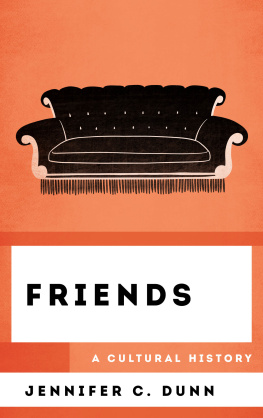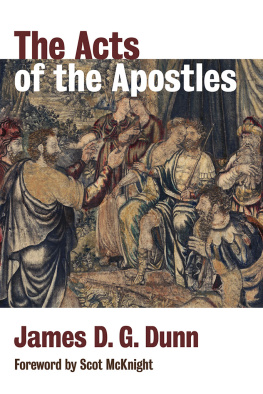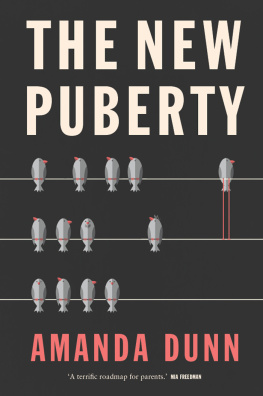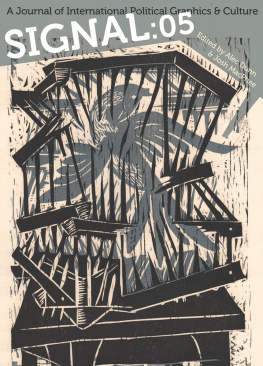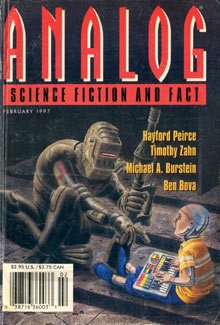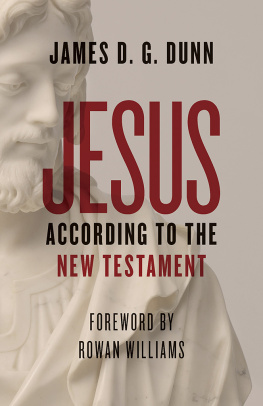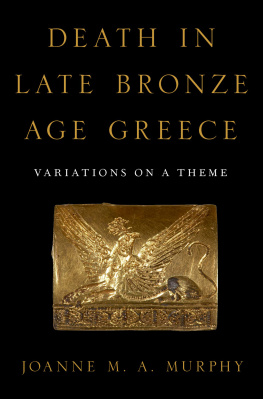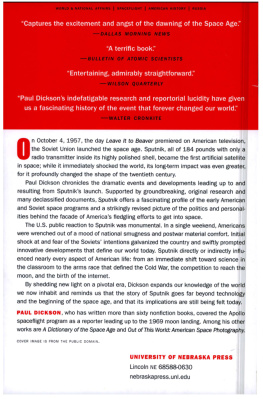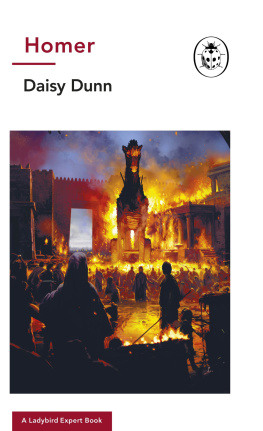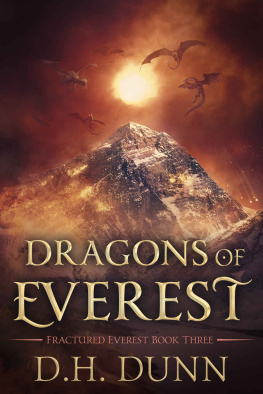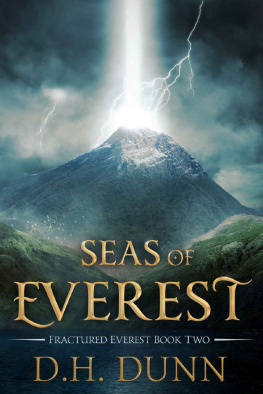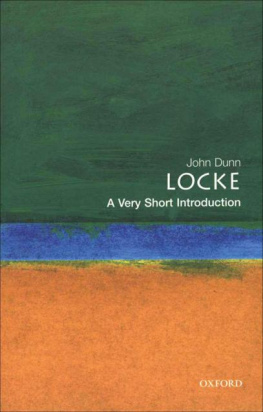Dunn - Present Shock in Late Fifth-Century Greece
Here you can read online Dunn - Present Shock in Late Fifth-Century Greece full text of the book (entire story) in english for free. Download pdf and epub, get meaning, cover and reviews about this ebook. City: Ann Arbor, year: 2008, publisher: University of Michigan Press, genre: Romance novel. Description of the work, (preface) as well as reviews are available. Best literature library LitArk.com created for fans of good reading and offers a wide selection of genres:
Romance novel
Science fiction
Adventure
Detective
Science
History
Home and family
Prose
Art
Politics
Computer
Non-fiction
Religion
Business
Children
Humor
Choose a favorite category and find really read worthwhile books. Enjoy immersion in the world of imagination, feel the emotions of the characters or learn something new for yourself, make an fascinating discovery.
- Book:Present Shock in Late Fifth-Century Greece
- Author:
- Publisher:University of Michigan Press
- Genre:
- Year:2008
- City:Ann Arbor
- Rating:4 / 5
- Favourites:Add to favourites
- Your mark:
- 80
- 1
- 2
- 3
- 4
- 5
Present Shock in Late Fifth-Century Greece: summary, description and annotation
We offer to read an annotation, description, summary or preface (depends on what the author of the book "Present Shock in Late Fifth-Century Greece" wrote himself). If you haven't found the necessary information about the book — write in the comments, we will try to find it.
Dunn: author's other books
Who wrote Present Shock in Late Fifth-Century Greece? Find out the surname, the name of the author of the book and a list of all author's works by series.
Present Shock in Late Fifth-Century Greece — read online for free the complete book (whole text) full work
Below is the text of the book, divided by pages. System saving the place of the last page read, allows you to conveniently read the book "Present Shock in Late Fifth-Century Greece" online for free, without having to search again every time where you left off. Put a bookmark, and you can go to the page where you finished reading at any time.
Font size:
Interval:
Bookmark:

Copyright by the University of Michigan 2007
All rights reserved
Published in the United States of America by
The University of Michigan Press
Manufactured in the United States of America
 Printed on acid-free paper
Printed on acid-free paper
2010 2009 2008 2007 4 3 2 1
No part of this publication may be reproduced, stored in a retrieval system, or transmitted in any form or by any means, electronic, mechanical, or otherwise, without the written permission of the publisher.
A CIP catalog record for this book is available from the British Library.
Library of Congress Cataloging-in-Publication Data
Dunn, Francis M.
Present shock in late fifth-century Greece / Francis M. Dunn.
p. cm.
Includes bibliographical references and index.
ISBN-13: 978-0-472-11616-4 (cloth : alk. paper)
ISBN-10: 0-472-11616-9 (cloth : alk. paper)
1. Greek literatureHistory and criticism. 2. Time in literature. I. Title.
PA3014.T56D86 2008
881'.0109dc22 2007023392
ISBN13 978-0-472-02561-9 (electronic)
Abbreviations
AJP: American Journal of Philology
B-T: Blass, F., and T. Thalheim, eds. Antiphon: Orationes et Fragmenta. Stuttgart, 1914.
ClAnt: Classical Antiquity
CQ: Classical Quarterly
D-K: Diels, H., and W. Kranz. Die Fragmente der Vorsokratiker. 3 vols. Berlin, 1952.
FGrH: Jacoby, F. Die Fragmente der griechischen Historiker. 15 vols. Berlin, 192358.
G&R: Greece and Rome
GRBS: Greek, Roman, and Byzantine Studies
HSCP: Harvard Studies in Classical Philology
JHS: Journal of Hellenic Studies
LSJ: Liddell, H. G., R. Scott, and H. S. Jones. A Greek-English Lexicon, with revised supplement. Oxford, 1996.
MusHelv: Museum Helveticum
PCPS: Proceedings of the Cambridge Philological Society
REG: Revue des tudes Grecques
RhM: Rheinisches Museum
SPAW: Sitzungsberichte der preussischen Akademie der Wissenschaften, Berlin
SVF: von Arnim, J., ed. Stoicorum Veterum Fragmenta. 4 vols. Leipzig, 1924.
TAPA: Transactions of the American Philological Association
TrGF: Snell, B., R. Kannicht, and S. Radt. Tragicorum Graecorum Fragmenta. 4 vols. to date. Gttingen, 197786.
WS: Wiener Studien
YCS: Yale Classical Studies
Any idiot can face a crisis.
Its this day-to-day living that wears you out.
Anton Chekhov
THIS BOOK HAS occupied me for many years and in that time has encountered obstacles of many kinds, which I shall not rehearse here. It has also been helped along in many ways, of which I mention just a few. The National Endowment for the Humanities and the American Council of Learned Societies both granted fellowships that greatly assisted my research. The Interdisciplinary Humanities Center and Academic Senate at the University of California, Santa Barbara, both gave awards that provided research assistance. Saul Morson generously offered advice and encouragement at an early stage of this project, as did Ruth Scodel at a later one. Christine Maisto, my research assistant, helped to make the following pages clear and readable.
NEAR THE END of Aristophanes Clouds, Strepsiades finds that his plan has backfired. He wanted his son Pheidippides to study at the Thinkery and, by learning newfangled skills in logic and rhetoric, be able to win any argument and so avoid paying their debts. The plan backfires when Pheidippides learns his lessons too well and turns the tables not only on the creditors but also on his own father. When the chorus of Clouds asks Strepsiades how things took this turn for the worse, he explains that it all began when he asked his son to recite some Aeschylus.
And you know what he replied? That he considered Aischylos a poet of colossal stature:Yup, the most colossal, pretentious, pompous, spouting, bombastic bore in poetic history.
I was so damn mad I just about went through the roof. But I gritted my teeth together, mustered up a sick smile and somehow managed to say, All right, son, if thats how you feel, then sing me a passage from one of those highbrow modern plays youre so crazy about. So he recitedyou can guessEuripides! One of those slimy tragedies where, so help me, theres a brother who screws his own sister!
Well, Ladies, that did it! I jumped up, blind with rage, started cursing at him and calling him names, and he started screaming and cursing back and before I knew it, he hauled off andwham!he biffed me and bashed me and clipped me and poked me and choked me and (Clouds 136576)
This domestic squabble between Strepsiades and Pheidippides recalls many of the issues that divided Athenians in the late fifth century: on the one hand stood respect for the past and for traditional values and forms of authority; on the other hand was an interest in novelty and in new literary and moral values, includingmost shocking of alla defiant rejection of paternal authority. Much of this conflict is familiar today. We as readers have experienced rapidly changing times; some of us are old enough to have lived through the 1960s, with their equally shocking rejection of authority. My choice of translation hereWilliam Arrowsmiths deliberately modern version of Clouds, published in 1962is meant to bring out this familiarity. Yet while the upheavals in the 1960s also involved rejecting traditional forms of authority, the effect was substantially different: the social and technological changes and the violent, potentially cataclysmic nature of those changes produced a state of disorientation that in 1970 Alvin Toffler named future shock. By this he meant that people were forced to confront the future without adequate preparation insofar as they were unable to keep up with or make sense of the rate of cultural change.
Changes in late fifth-century Athens were in their own way, I argue, just as rapid and potentially cataclysmic; they included a revolution in 411 and military catastrophes in 413 and 404, as well as the major cultural and intellectual upheavals to which Aristophanes alludes. Yet rather than future shock, these changes produced what I call present shock, whereby the magnitude and speed of change severs ties with the authority of the past, immersing individuals in a disorienting present. How can I navigate these stormy seas, Strepsiades might have asked, without the ballast of traditional values to keep my ship steady?
Whereas Strepsiades found comfort in the past, his modern counterparts instead found it in models of long-term change that seemed relatively steady and progressive: Charles Darwin, for example, attempted not only to explain how species evolved in the past but also to demonstrate that the same mechanisms would generate evolution along such lines into the future, and Karl Marx offered not only a diagnosis of the rise of capitalism and its attendant evils but also a prognosis of how the dialectic of power would continue. While neither of these models was deterministic, each situated the present individual or society within an intelligible trajectory from past to future. Precisely how we make our way from past to present to future became over time increasingly contested as first modernism and then postmodernism complicated and finally splintered these grand narratives;Introduction 3 presence of a larger trajectory. Toffler indicates one particular way in which the inherited trajectory became problematic, as the future seemed to hurtle down upon the present.
Font size:
Interval:
Bookmark:
Similar books «Present Shock in Late Fifth-Century Greece»
Look at similar books to Present Shock in Late Fifth-Century Greece. We have selected literature similar in name and meaning in the hope of providing readers with more options to find new, interesting, not yet read works.
Discussion, reviews of the book Present Shock in Late Fifth-Century Greece and just readers' own opinions. Leave your comments, write what you think about the work, its meaning or the main characters. Specify what exactly you liked and what you didn't like, and why you think so.




